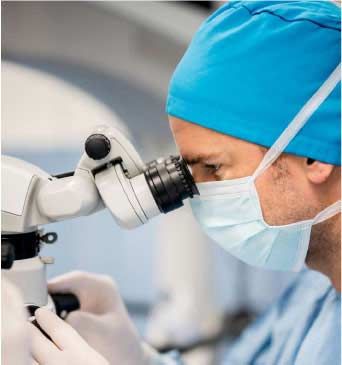What is Primary Eye Care?
Primary eye care, otherwise known as optometry, is the first line of defense in vision care and promotes overall eye health in patients of all ages. Optometrists are medical professionals who are trained to practice optometry, having obtained their undergraduate degree, and gone onto obtain their Doctor of Optometry (OD) degree after four years of study. Some optometrists may also have additional training, such as fellowships or certifications.
Every optometrist is trained in treating and managing eye disease, performing sight correction by prescribing glasses and contact lenses, and removing foreign bodies from the eye. Most of their training revolves around improving the vision of their patient and recognizing eye disease so that they can then refer their patient to the correct specialist for more advanced treatment, such as injections or surgery. For many patients, the optometrist will be the go-to eye care provider for routine eye exams and post-surgical care.



What is Optical?
Optical refers to the process of helping a patient select, as well as adjust, the appropriate pair of glasses or contact lenses for their prescription. When choosing the right pair of glasses, you may be assisted by an optician.
What is an Optician?
An optician is a medical professional that helps to fill the prescription given to you by your optometrist or ophthalmologist. They can also check prescriptions, adjust the fit of eyewear for comfort, fix and repair eyeglasses, and help you select the glasses or contact lenses that are right for your budget and lifestyle, including coating and type of lens. Unlike optometrists, opticians do not perform eye exams, nor do they manage or treat disease.
Our Services
Learn more about what we have to offer at the links below.

Ophthalmology
Ophthalmology is a specialty that focuses on diseases of the eye and their treatments, often including surgery.
Learn More

Primary Eye Care
When someone is looking to improve their vision, or receive a routine eye exam, optometrists are the first line of defense in eye care.
Learn More

Retina
Because of the many aspects needed for proper eye function, ophthalmology has been divided into subspecialties. One of these is retina disease.
Learn More

Acuity 360
The Acuity 360 Advanced Vision Center™ eye exam uses a minimally invasive method to provide a comprehensive look at your eye health..
Learn More